IMPACT LABS 2023 HIGHLIGHTS



Impact Labs was launched in 2023 as one of the primary external engagement vehicles for the Monash Business School. Impact Labs is a key component of the Monash Business School’s external engagement strategy, which is founded on facilitating a self-sustaining virtuous cycle between research, engagement and education, which, in equal parts, leverage, inform and support each other. More generally, Impact Labs is allowing us to better engage with the communities that we serve in multiple ways.
Each of the Labs represents an important multidisciplinary endeavour which seeks to align research expertise in the Business School with the needs of government and industry and facilitate opportunities for mission-led programmatic collaborative solutions with researchers in other Monash Faculties. The latter is particularly important in addressing the grand challenges posed in Impact 2030, which are all fundamentally multidisciplinary in nature and will require co-designed approaches across disciplinary bounds.
We are incredibly proud of what each of our six Labs has been able to achieve in a short period of time. As detailed in the following pages, Impact Labs has been important in increasing our Category 2 and 3 research income, developing a number of commercialisation opportunities and facilitating our research engagement and impact. A key element of the virtuous cycle is using our research to inform our education offerings and, in turn, getting ideas from the firms and industries we engage to inform our research. Of particular note, in this respect, is the Impact Labs component of the Business School’s Executive Education offering to CitiPower, which has included important contributions from Energy Lab, Green Lab and SoDa Labs.
I thank each of the six Lab Directors and Shahab Sazegar, the Impact Labs Coordinator, for all of their work this year, and everyone who has contributed to making Impact Labs a success.
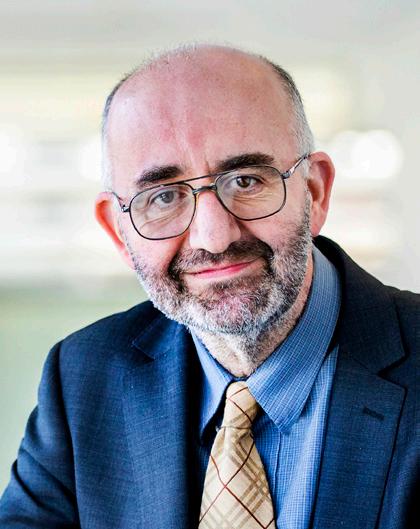
Monash Business School has historically prioritised discipline-based scholarly research, primarily through academic departments. However, recognising the importance of engagement and impact, the school is now shifting its strategic direction. To further this agenda, they planned to establish Impact Labs, an entity that will foster impactful research, facilitate collaboration with industry and government, and align with Monash University’s goals regarding climate change, geopolitical security, and thriving communities as outlined in the Impact 2030 strategic plan. Impact Labs replaced the Centre for Global Business (CGB) and serves as a dynamic structure for applied research “labs.” It provides external visibility and internal organisational structure for strategic planning, execution, and financial accountability. Impact Labs contributes to the school’s integrated engagement vehicle, which includes other initiatives such as the Creative Destruction Lab venture and the Pacific Action for Climate Transition (PACT), a joint centre on climate change with Fiji National University.
Launched in January 2023, Impact Labs at Monash Business School currently consists of six individual multidisciplinary Labs.
Digital Lab, is a premier research hub in the digital economy. Conducts and performs projects and research in digitalisation relevant to businesses, the economy and policy, including big data, online privacy, competition policy, the role of AI in productivity and management, and more.
Energy Lab, engages in influential and impactful multidisciplinary research on energy markets in collaboration with industry and policymakers. Bringing together interdisciplinary expertise in market structure, design and behaviour, forecasting, experimental analytics and big data, energy finance and regulation.
Green Lab, brings together a cohort of academics and industry experts on the issue of climate change and sustainability, to tackle current and future challenges in the areas of climate change and health, climate finance, climate adaptation and legislative frameworks, climate resilience and wellbeing, economic and financial modelling of climate change, climate accounting including insurance risk and promotion of clean energy and technologies.
Mutual Value Lab, is a hub for interdisciplinary and applied research on Cooperatives and Mutual Enterprises (CMEs) and mutual value creation. It conducts research on the operation and potential benefits of the CME business model, including how CMEs can help promote growth, create, and sustain markets, deliver competition and choice, and provide economic and social benefits for their members and local communities.
Opportunity Tech Lab, seeks to remove inequities in economic participation by identifying challenges and discovering, developing, and delivering opportunities and pathways to dignified and meaningful employment and entrepreneurship for socially disadvantaged, stigmatised, and vulnerable groups.
SoDa Labs, seeks to enrich the basis for policy and government research by using new tools in data science and machine learning to open data sources beyond traditional survey instruments and statistical agency reporting. Using sophisticated platform expertise and capabilities at the intersection of empirical, social, computer, and geospatial sciences, the core SoDa team develops the instruments to make previously difficult-to-analyse data available to social science researchers.
Our commitment to driving positive change is realised through our six pioneering Labs and their expert networks spanning multiple disciplines. These Labs serve as hubs for innovative research, bringing together a diverse group of change-makers for meaningful impact. Consistent with the objectives of Impact Labs, each Lab will be assessed based on indicators such as:
• Success in securing external research funding.
• Success in achieving ‘impact’ as defined in the Business School’s Research Performance Standards.
• Success in promoting recognition of the Business School’s activities in their designated area and supporting the Business School’s interdisciplinary research strategy.
• The extent to which the Lab is self-sustaining. The expectation is that each Lab will be at least 60% self-sustaining over a period of five years. These measures emphasize the Labs’ commitment to not only producing impactful research but also ensuring long-term sustainability and recognition within the academic and broader community.
For detailed insights into each Lab, including statements from their directors, please refer to Part 2.
Since the launch of our operations in January 2023, Impact Labs has experienced remarkable growth within our team. As we set our sights on 2024, our projections point to a period of consolidation as we build on our beginnings and steadily magnify our impact. Moreover, our labs draw strength from a robust network that encompasses over 200 individuals spanning diverse disciplines, including academia, industry experts, government officials, and policymakers.
The 2023 organisational outline is structured as follows:
Research Fellow
Ratul Das Chaudhury
Research Fellow Vacant
Associate Professor
Guillaume Roger
Research Fellow
Sergei Balakin
Research Fellow
Ningyi Sun
Research Fellow
Nawaaz Khalfan
Professor Frank Wolak
Research Fellow
Ella Vines (Commencing 2024)
Research Fellow Liyan Zhang
Research Fellow Vacant
Research Fellow Vacant
Research Fellow Yashdeep Dahiya
Research Fellow Lachlan O’Neill
Co-Director Professor Paul Raschky
Research Fellow David Hajo Kreitmeir
Research Fellow
Lukas Wellner (Commencing 2024)
Our internal grant scheme is a valuable resource designed to empower Impact Labs members by supporting initiatives and activities aligned with their engagement and outreach priorities. The process involves a panel, led by the Deputy Dean of Research, who carefully evaluates proposals. These applications are assessed based on their potential to advance the strategic priorities of the respective lab and enhance the chances of securing external funding.
Proposals accepted through this scheme may encompass various elements, including investments in infrastructure that boost external partnerships and lay the groundwork for grant opportunities. Additionally, initiatives such as events and meetings aimed at promoting strategic partnerships that can evolve into research projects are considered, provided they articulate clear objectives and expected outcomes. Requests for hiring Research Fellows at Level B or casual Research Assistants are also eligible, provided the role’s purpose, required skills, and alignment with specific external grant objectives are clearly outlined.
Proposal title: Investing in the Global Potential of the Monash IP Observatory
Applicants: Associate Professor Simon Angus and Professor Paul Raschky
Proposal description:
The Monash IP Observatory, established in 2018, has achieved outstanding success and naturally aligns with Monash University’s Geo-Political Security Impact 2030 agenda. It has gained worldwide recognition as a trusted source of data, visualisation, and insights for a range of stakeholders, including researchers, journalists, humanitarian organisations, and government agencies. Operating as a virtualised measurement system, the Observatory conducts over three billion daily observations, providing valuable data on the activity and quality of millions of IP addresses across the globe. The value of the Observatory to Monash’s global reputation is immeasurable, as it maintains numerous global interactions and dependencies.
Outcome: Funding of A$64,700.00 was awarded to support the advancement of the IP Observatory infrastructure, as previously budgeted for, and the development of the web platform.
Proposal title: VR-ELOVATE: Virtual Reality Editor Leveraging Opportunity Tech Lab’s Virtual Assets for Training and Education – A VR Platform for Designing and Delivering High-Impact Inclusion Programs
Applicants: Professor Charmine Hartel, Dr Paul McIntosh and Dr Irwyn Shepherd
Proposal
description:
Recent feedback on an externally funded Virtual Reality program designed to help autistic individuals develop business ideas highlighted the need for more interactive and tailored VR content. The current VR platforms are primarily designed for gaming and lack the necessary customization. To address this, a specific VR-level editor, an extension of the Unity game platform, will be developed to create and deliver interactive VR content.
A “Level Editor” streamlines content development and is commonly used in game development to achieve specific consumer outcomes. It simplifies the more complex game editor, making it user-friendly for non-technical designers to create and edit content without coding expertise. The project plan involves delivering features within the Unity 3D Game Editor, adapting existing content for the Inclusivator©, and creating a Level Editor with exemplary content.
Outcome: Funding of A$35,000.00 was awarded for the development of the VR-ELOVATE.
Lab:
Opportunity Tech Lab
Proposal title: Development, Testing, and Implementation of a Novel VR Suite for Neurocognitive Assessment and Workplace Interventions
Applicants: Professor Charmine Hartel and Associate Professor Kristian Rotaru
Proposal description:
The project aims to address workplace challenges related to health, well-being, and inclusivity. It focuses on developing innovative neurocognitive assessment tools using Virtual Reality (VR) to overcome the limitations of traditional assessments. The project emphasizes executive function (EF) and aims to capture real-world decisionmaking processes by enhancing engagement through immersive VR assessments and gamification. The goal is to improve workplace culture, productivity, and equity in employment.
Outcome: Funding of A$111,603.00 was awarded to recruit a 1.0 FTE Level B Research Fellow for an initial 12-month appointment.
Lab: Green Lab
Proposal title: Monash Circular Economy Roundtable
Applicants: Professor Amrik Sohal, Department of Management and Associate Professor Glen Croy
Proposal description:
Outcome:
The shift to a Circular Economy (CE) is driven by concerns such as resource scarcity, environmental impacts, and economic sustainability. CE replaces the linear “takemake-use-dispose” model with circular materials, components, and product flows to reduce waste and emissions. This transition enhances community well-being and mitigates climate change. The Monash Circular Economy Roundtable (MCER) is proposed to leverage Monash Business School’s expertise in CE and support businesses, especially SMEs, in adopting circular strategies. MCER will serve as a resource centre to provide information, knowledge, and support for businesses on their circularity journey, addressing the need for practical guidance and capacitybuilding.
Funding of A$12,550.60 was awarded to support the logistics of the roundtable.
Lab: Green Lab
Proposal title: Net Zero, Nature Positive Companies
Applicants: Associate Professor Anita Foerster, Associate Professor Anke Leroux, Associate Professor Mukesh Garg, Dr Ummul Ruthbah and Associate Professor Wang Lee
Proposal description:
This project addresses the growing market and regulatory pressures on businesses, including those in Australia, to address climate change and biodiversity loss. As companies face new disclosure requirements and expectations to transition towards net-zero emissions and nature-positive practices, this research aims to:
• Track corporate responses to evolving regulatory and market contexts.
• Assess the effectiveness of these responses in improving corporate risk management and environmental performance.
• Propose regulatory framework changes to support better corporate risk management and environmental practices.
The project comprises several interconnected studies, including regulatory analysis, empirical investigations into net-zero and carbon offsets, nature-positive company practices, corporate strategies for meeting climate targets, and supply-side considerations in emerging carbon and biodiversity markets. These studies aim to provide insights into the effectiveness and challenges of corporate responses to climate and nature-related risks and guide regulatory improvements.
Outcome: Funding of A$334,809.00 was provided to recruit a 1.0 FTE Level B Research Fellow over a three-year period. Additional funding totalling A$36,668.00 was awarded to recruit a Research Assistant.
Lab:
Mutual Value Lab
Proposal title: Examining the economic resilience and shaping market activities of mutual banks to develop insights on their distinctive contribution to the Australian economy
Applicants:
Proposal description:
Associate Professor Paul Thambar and Professor Mathew Hall
Customer Owned Banking Association (COBA), representing nearly all mutual banks in Australia, aims to understand the distinctiveness of mutual banks compared to the Big 4 banks. They seek to develop insights that can be used to explain this distinctiveness to the banking regulator, APRA. To accomplish this, the Lab, in collaboration with academic researchers, plans to hold scoping workshops with COBA representatives and potential mutual bank participants. These workshops will help shape the basis for a research study. The budget request is for two oneday scoping workshops involving up to 20 participants, including Monash staff. The budget covers catering costs and airfares for a workshop in both Monash and Sydney.
Outcome: Funding of A$5,020.00 has been awarded to support this activity.
Lab:
Proposal title:
Applicants:
Proposal description:
Mutual Value Lab
BCCM Care Together Program
Associate Professor Paul Thambar and Professor Mathew Hall
The Mutual Value Lab’s engagement in this 2-year pilot program, funded by the Australian government, focuses on assessing the provision of social care services in remote and regional Australia through cooperative and mutual enterprises (CMEs). The Lab will support the development of 13 projects by CMEs in these areas and employ the mutual value measurement (MVM) framework to measure and communicate the value created by these projects. The research activities will encompass evaluating the CME projects, investigating their economic performance, shaping market activities, and co-developing a Program Information System for monitoring and evaluation. The research proposal has been approved by BCCM and includes the employment of a Research Fellow (Level B) for two years, jointly funded by Monash and BCCM. This program strengthens the Lab’s engagement with BCCM and the sector while evaluating the impact of the MVM framework on value creation in the social care sector through CME business models.
Outcome: Funding of A$150,486.00 was awarded to recruit a 1.0 FTE Level B Research Fellow for two years. This approval is for the Monash share of a BCCM-Monash jointly funded Research Fellow.
Lab: Energy Lab
Proposal title: External Partnership and Engagement – ASEAN Centre for Energy Research
Applicants: Professor Paresh Narayan
Proposal description: The Energy Labs Strategic Plan is designed to develop industry collaboration and research partnerships with energy research institutions, focusing on impactful research that influences public policy. Energy Labs has proposed to facilitate a conference on energy research in collaboration with the ASEAN Centre for Energy Research, featuring the participation of the CEO of ADBI and the Director of the ASEAN Centre for Energy Research. The conference is envisioned not only to showcase research findings but also to further strengthen collaboration with Monash University.
Outcome: Funding of A$12,000.00 was awarded to support this activity.
In conjunction with our internal grant scheme, Impact Labs has successfully secured external funding in 2023 from a range of sources. These external funding streams which are expected to grow over time, are integral to advancing our strategies and realising the key objectives outlined in this report. The following fundings are primarily managed by Impact Labs, either independently or in collaboration with other units. Several academics outside of Impact Labs also serve as co-investigators on projects.
Lab: Mutual Value Lab
Project title: Care Together Program

Proposal description: “Care Together” is a program providing education, advisory, and support services to selected projects aiming to develop sustainable social care solutions. Focused on areas where current approaches are lacking, it particularly targets regional, rural, and remote Australia, addressing aspects such as aged care, disability care/NDIS, Veterans’ care, Indigenous services, allied health, and primary health care.
Funding organisation: Business Council of Cooperatives and Mutuals (BCCM)
Awarded amount: A$359,321.00
Lab: SoDa Labs
Project title: The Socioeconomic Determinants of Local Print, Radio, and Digital News Media Availability

Proposal description: This proposal outlines a four-month project for an empirical analysis of socio-economic factors affecting local newspaper circulation in Australia. The initiative could pave the way for a more extensive collaboration between PIJI and SoDa Labs (Monash University), employing novel data science methods to support public interest journalism objectives across Australia and potentially beyond.
Funding organisation: Public Interest Journalism Initiative (PIJI)
Awarded amount: A$21,232.00
Lab: SoDa Labs
Project title: Strengthening Democracy: Analysing Australia’s public discourse of democracy at scale

Proposal description: The Scanlon Institute (SI) has enlisted SoDa Labs to assist in researching public discourse on “democracy in Australia” in recent years. Specifically, they seek support for three key questions:
1. What are the similarities and differences in public discourse on democracy in media and parliamentary debates?
2. How have these discourses evolved over time, shaped by national and international events?
3. How is discourse on democracy framed, and what other topics accompany it?
Funding organisation: Scanlon Foundation
Awarded amount: A$22,262.00
Lab: Energy Lab
Project title: Global Trade and Economic Recovery in the Post-Pandemic World
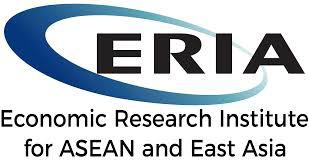
Proposal description: This project aims to produce a special issue with around 10 papers on trade’s role in addressing shocks like COVID-19 in ASEAN countries. It also plans to create an edited book with about 10 chapters for publication, potentially by Routledge. The project will conclude with a policy dialogue to disseminate key findings to researchers and policymakers. Qualified papers will be published as ERIA discussion papers.
Funding organisation: Economic Research Institute for ASEAN and East Asia
Awarded amount: A$507,960.98
Lab: Energy Lab
Project title: Integrating energy storage into the NEM: Bidding, clearing, settlement, dispatch, and ancillary markets.

Proposal description: This project contributes to Australia’s energy transition process, emissions reduction, and increased use of renewable energy. Large-scale storage is crucial for success, but current market rules lack incentives for investment. The project aligns with ARENA’s priorities to facilitate renewable energy deployment, aiming to inform policymakers and market participants, fostering storage emergence, and advancing renewable energy penetration.
Funding organisation: Australian Renewable Energy Agency (ARENA)
Awarded amount: A$495,000.00
Lab: Energy Lab
Project title: Impact of Climate Change on SMEs and Food Security in Fiji

Proposal description: Fiji’s small and medium enterprise (SME) sector, though in a developing stage, holds growth potential through robust marketing strategies. Despite some success stories, challenges persist. Recognised as vital for sustainable economic development, this project examined factors impacting SMEs in Fiji. Among these, pricing, fixed costs, and competition from larger businesses emerge as significant challenges for the sector.
Funding organisation: Department of Foreign Affairs and Trade (DFAT)
Awarded amount: A$90,909.00
Lab: Digital Lab
Project title: Big data: Implications for competition, privacy, and regulation

Proposal description: This project aims to provide economic analyses of the costs and benefits of business strategies driven by consumer data, while considering consumers’ privacy concerns. This is highly relevant and timely given the vast amount of consumer data collected, shared, and used in the digital era. Expected outcomes include better understanding of how data may lead to market power and how to safeguard against abuse of market power and privacy breach.
Funding organisation: Australian Research Council (ARC)
Awarded amount: A$266,000.00
As a hub for interdisciplinary research and engagement, we welcome and encourage inquiries. Connect with us through our channels, including email at impactlabs@monash.edu, or visit our website at monash.edu/business/impact-labs to explore various options to engage with us. The labs offer a variety of engagement levels, with some enabling collaborative research on Impact Labs projects.
For more detailed information about each lab and our specific initiatives, please proceed to Part 2 of this report, where you can delve into an in-depth exploration of our diverse projects and research areas.

The Digital Lab was established in 2023 as a multidisciplinary research platform to conduct highestquality research on how digital technologies impact businesses, economy, and policy, and leverage its research credential to engage with stakeholders outside academia. The Digital Lab comprises 10 core team members (eight academic members from Economics, Law, and Management, and two from outside academia), and many affiliated members from Australia and abroad.
On the research front, the Digital Lab’s core academic members produced research that was published or accepted at several group 1+ and group 1 journals. Our core team has ongoing research projects funded by an Australian Research Council Discovery Project grant and a UK Economic and Social Research Council grant.
On the engagement front, the Digital Lab organised in March 2023 a two-day international conference on the opportunities and challenges of the digital revolution. The conference brought together thought leaders from academia, government, and industry. The list of academic participants includes three editors of group 1+ journals (Management Science and Marketing Science). From the government side, we had two keynote speakers, Gina Cass-Gottlieb (Chair, ACCC) and Andrew Leigh (Assistant Minister for Competition, Charities & Treasury) as well as the chair and commissioners of the Productivity Commission. The conference had healthy participation from the industry including Google (Director of Economic Policy), Meta (Head of Public Policy), the Business Council of Australia, and the Technology Council of Australia. In addition to the conference, the Digital Lab organised a public seminar by Dr Lilla Csorgo, the ACCC’s chief economist. We also made a submission to the Commonwealth Treasury on Digital Platforms: Government consultation on the ACCC’s regulatory reform recommendations.
As a new entity, forming partnerships with prominent, established institutions is important for the Digital Lab in building networks and gaining recognition. In 2023, we developed partnerships with established research centres and initiatives on the digital economy such as USC Marshall Initiative on Digital Competition (University of Southern California), the Mannheim Centre for Competition and Innovation (MaCCI), and the Centre for Business Analytics and the Digital Economy (Hong Kong Baptist University).
We are also Australia’s flag-bearer in starting a new research consortium titled CODE (Consortium on Digital Economy). CODE is a multidisciplinary consortium in our region (Australia, China, Hong Kong, Japan, Singapore, South Korea, and Taiwan) with researchers from economics, law, business analytics, marketing, management, operations, information systems, etc, and is expected to be in full operation from 2024.
Moving forward, the Digital Lab will continue with its highest-quality research, contribution to the policy discourse including active engagement with the ACCC, and endeavour to engage with industry. If you have ideas or initiatives relevant to the Digital Lab’s main areas, please reach out or join us as a member.

The Digital Lab is a multidisciplinary, inter-faculty research platform that brings together researchers from economics, law, and other business disciplines to engage in and facilitate cutting-edge research on how digital technologies impact businesses, economy, and policy.
The Digital Lab has two themed research networks: The Digital Economy Research Network (DERN) and the Monash Business Digitalisation Research Network (MBDRN). The DERN’s focus is the economics side of the digital economy, while the MBDRN focuses on the business side of digitalisation.
Our vision is to be recognised as our region’s premier research platform in the digital economy and to leverage it for engagement with stakeholders in academia, industry and policy spheres.
•
As a new entity, developing partnerships with prominent, established institutions is important in building networks and gaining recognition. By 2024, we will endeavour to develop partnerships with a few research centres and initiatives on the digital economy, both domestically and abroad.
Actions to take: The director to reach out to identified research centres/initiatives with strategic importance.
Success measures: Partnerships recognised on the Digital Lab’s website.
One of our primary aims is impactful engagement with stakeholders outside academia, government, and industry.
Actions to take: (i) Organise a conference/workshop with a practitioner focus; (ii) engagement in policy discussions through submissions to public inquiries, e.g., ACCC’s Digital Platform Services inquiry; (iii) bidding for a partnership with the ACCC in co-hosting the ACCC’s annual Law and Economics conference.
Success measures: Conference successfully organised, submissions made, (hopefully) successful bid for the ACCC partnership.
•
In the short term, our primary target for external funding is cat 1 or 2 research grants. It is because, for cat 3 external funding (and another specific-purpose funding from industry) which we will eventually target, the Digital Lab needs to be recognised first and the above two objectives need to be met beforehand.
Action: Applications to cat 1, and 2 research grants, and possibly seeking cat 3 funding.
Success measures: Given that a cat 1 grant such as ARC-DP has less than 10% success rate (in economics), an unsuccessful grant application is not necessarily a sign of failure. So, an immediate success measure is a grant application lodged through the MRO with a further success measure depending on an eventual success in securing the grant.
The Digital Lab’s core team comprises seven academic staff (three from Economics, one from Management, and two from Law), but only two have a positive FTE at the Digital Lab. Nonetheless, we aim to publish high-quality research in line with the faculty’s research standards (e.g., A* journal publication, books, etc.). In addition, we will also engage in research with more practitioners to focus on current issues relevant to policy.
Action: As above.
Success measures: A* publications. Other publications on current issues relevant to policy in Australia.
Funded research projects
• Chongwoo Choe, Zhijun Chen, and Chengsi Wang (2021–2023), ‘Big data: implications for competition, privacy and regulation,’ $266,000, Australian Research Council Discovery Project (DP210102015).
• Mel Marquis (2023), ‘Competition Law and Vertical Restraints in Thailand: A Best Practice Approach for Distribution Agreements’, $41,562, Commonwealth, AU.
• O’Reilly, J., Stuart, M., Cooke, F. L., Rubery, J., et al. (2019–2023), ‘Digital futures at work (Dig. IT Futures@Work),’ £6.5 million, Economic and Social Research Council (ESRC), UK.
• C. Wang, C, Teh, and M. Watanabe, ‘Strategic Limitation of Market Accessibility: Search Platform Design and Welfare,’ forthcoming, Journal of Economic Theory.
• Y.-K. Che, C. Choe, and K. Rhee, ‘Bailout Stigma,’ forthcoming, Journal of Finance.
• Choe, J. Cong and C. Wang, ‘Softening Competition through Unilateral Sharing of Customer Data,’ forthcoming, Management Science.
• Wang and J. Wright, ‘Platform Investment and Price Parity Clauses,’ forthcoming, Journal of Industrial Economics.
• R. D. Chaudhary and C. Choe (2023), ‘Digital Privacy: GDPR and Its Lessons for Australia,’ Australian Economic Review, 56(2): 204-220.
• Choe, N. Matsushima and M. J. Tremblay (2022), ‘Behavior-Based Personalized Pricing When Firms Can Share Customer Information,’ International Journal of Industrial Organization, 82, 102846.
• Z. Chen, C. Choe, J. Cong, and N. Matsushima (2022), ‘Data-Driven Mergers and Personalization,’ RAND Journal of Economics, 53(1): 3–31.
• Ghosh, H. Morita, and C. Wang (2022), ‘Welfare Improving Horizontal Mergers in Successive Oligopoly,’ Journal of Industrial Economics, 70(1): 89–118.
• June 1, 2022 – Chongwoo Choe and Chengsi Wang presented at the ACCC stakeholder roundtable on competition measures for digital platform services.
• March 22, 2022 – Chongwoo Choe, Chengsi Wang, and Ratul Das Chaudhury made a submission to the ACCC digital platform services inquiry
• February 6, 2023 – Chongwoo Choe, Chengsi Wang, and Ratul Das Chaudhury made a submission to the Commonwealth Treasury in response to Digital Platforms: Government consultation on ACCC’s regulatory reform recommendations.
• March 17, 2023 – At the Conference on the Opportunities and Challenges in the Digital Revolution organised by the Digital Lab, Gina Cass-Gottlieb, ACCC chair, delivered the first keynote speech, and the Hon Dr Andrew Leigh, Federal Assistant Minister for Competition, Charities and Treasury, delivered the second keynote speech.
• June 19-20, 2023 – Mel Marquis provided intensive training to the Trade Competition Commission of Thailand in relation to vertical restraints in offline and online contexts.
• July 19, 2023 - Stephen King spoke as a panellist in the webinar “Competition in Digital Markets – Part III” organised by Access Partnership, one of the world’s leading public policy consultancies focused on technology.
• August 15-16, 2023 – Chris Marsden spoke at the Telecommunications and Media Forum organised by the International Institute of Communications, a global, independent, not-for-profit policy forum for the converging telecoms, media and technology industries.
• October 6, 2023 – We organised a seminar by ACCC’s Chief Economist Dr Lilla Csorgo, who gave a talk titled ‘Competition Economics: Is It Broken?’ The seminar was held at the Monash Clayton campus.
People and partners
Core team:
• Professor Chongwoo Choe, Director, Impact Labs
• Professor Arthur Campbell, Department of Economics
• Dr Chengsi Wang, Department of Economics
• Professor Fang Lee Cooke, Department of Management
• Professor Christopher Marsden, Monash Law School
• Dr Mel Marquis, Deputy Associate Dean (Engagement), Monash Law School
• Dr Ratul Das Chaudhury, Research Fellow, Impact Labs
• Neerav Srivastava, PhD Candidate, Monash Law School
• Dr Stephen King, Commissioner, ACCC
• Gay McLaren, Consultant, Hardiman Telecommunications
Key partners:
• USC Marshall Initiative on Digital Competition, University of Southern California
• The Mannheim Centre for Competition and Innovation (MaCCI)
• Centre for Business Analytics and the Digital Economy, Hong Kong Baptist University
• Monash Data Futures Institute (MDFI), Monash University
• Centre for Commercial Law and Regulatory Studies (CLARS), Monash Law School
Connect with us
Email: digitallab@monash.edu
Web: monash.edu/business/impact-labs/digital-lab
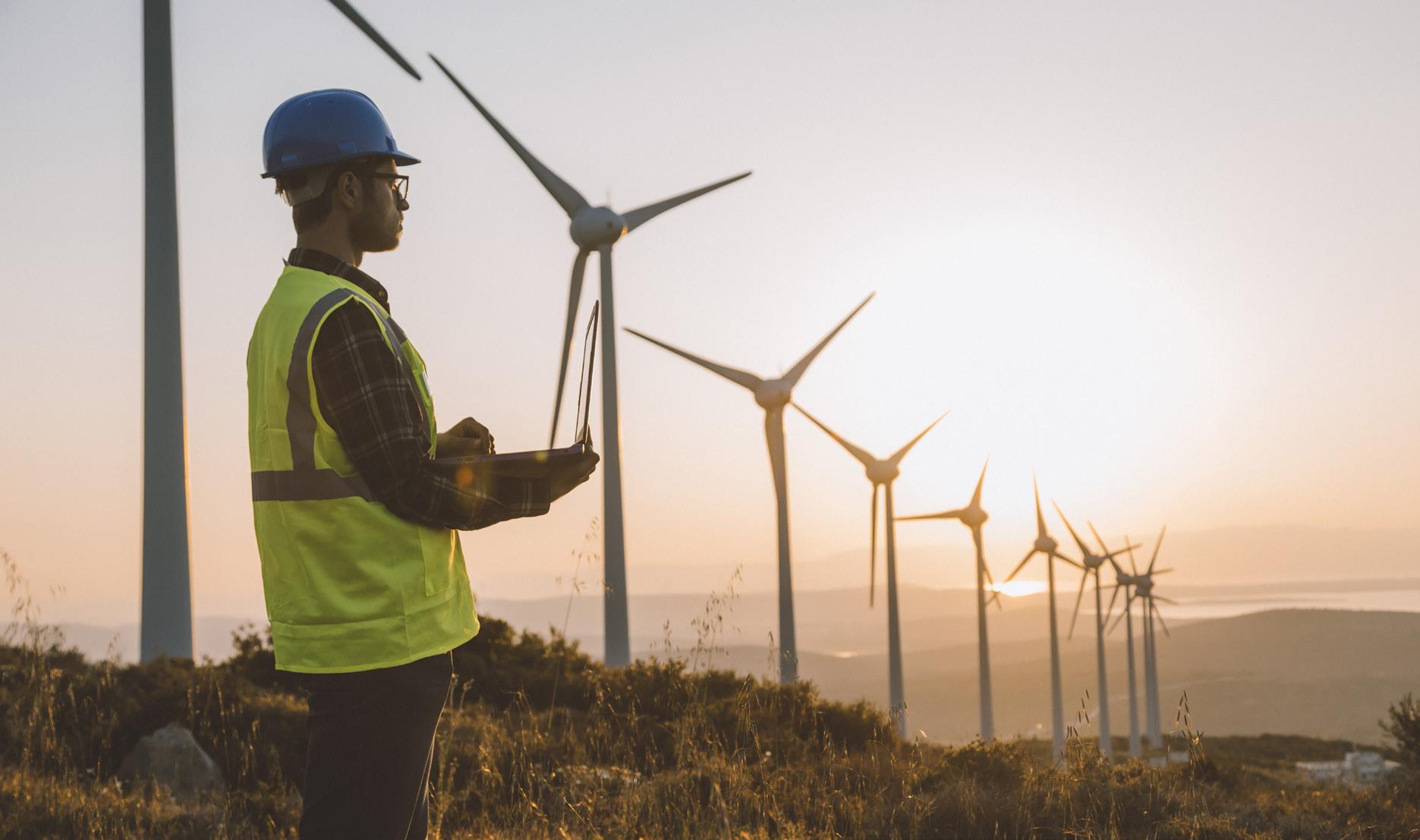
As the Director of Energy Labs, I am pleased to provide a report on the Lab’s first 10-month journey. In our pursuit of excellence, we have strategically connected to and engaged with key stakeholders in both Australia and the Asia-Pacific region.
The Lab’s effort has been aimed at fostering collaborations that amplify the impact of our research initiatives to influence our pursuit of becoming an impactful energy research leader in the region. As part of this strategy, the Lab has collaborated with the Monash Energy Institute and has jointly participated in a range of stakeholder engagements to provide visibility and market the Lab’s vision. The year has been more about marketing and networking the Lab.
Our research has not only contributed to academic discourse but has also provided and is providing practical solutions that can drive positive change to real world problems. This is reflected in the existing research grants with industry and publications in academic journals.
As a new Lab, despite much of the existing outputs reflecting past efforts (we are a Lab in transition), these are accomplishments upon which to build future success stories. We look forward to the opportunities that lie ahead. The first year’s engagements provide the Lab ample indicators that we are poised to lead the way in energy research, driving meaningful impact in Australia and the Asia-Pacific countries.
I wish to thank our valued stakeholders, collaborators (including the Monash Energy Institute), and the entire Energy Labs team for their contributions. Together, we will have more.

Energy Lab undertakes relevant, significant, and multidisciplinary research on energy markets in collaboration with industry and policymakers. We build on Monash Business School’s existing strengths in energy research to enhance impactful collaborations and partnership opportunities sourced and coordinated across Monash by the Monash Energy Institute (MEI). We grow the connections and relationships with key external industry and government partners such as the Australian Energy Market Operator (AEMO), Woodside Energy, RACE for 2030 CRC, the Australian Energy Market Commission (AEMC) and the Australian Energy Regulator and Energy Consumers Australia. We often do this through MEI’s spin-out initiatives, such as the Grid Innovation Hub (GIH), which is Monash Net Zero 2030 Initiative’s living lab.
A current area of focus is the challenge of accelerating the transformation of the power sector through the GIH, tackling the urgent Energy Market Design problem with the AEMC, ARENA, and Power Systems Consulting
To be an impactful energy research leader in Australia and the Asia-Pacific countries through strategic engagement with key stakeholders.
• To engage in influential and impactful multidisciplinary research on energy markets in collaboration with industry and policymakers
• Combine existing Monash Business School strengths in market structure, design and behaviour, forecasting, experimental analytics and Big Data, energy finance and regulation to address global climate challenges and shape economic policy and best practice
We conduct a range of interdisciplinary research projects seeking to meet emerging national and international energy challenges including:
• Energy transition
• Greenhouse gas emissions and energy usage in manufacturing.
• Taxation law to support energy justice.
• Barriers to energy use in the circular economy.
• Geopolitical energy challenges, partnerships, and equality.
Our research agenda and expertise consist of several interrelated themes, as follows:
• Energy finance and energy security
• Climate and Energy Econometrics
• Applications and tool for climate and energy modelling
• Electric Vehicles: technology and taxation.
• Energy economics.
• Energy consumption behaviour in developing countries
Led by Associate Professor Guillaume Roger, The Australian Electricity Market Initiative (AEMI) is an initiative introduced by the Monash Business School to spur academic research, policy formulation and industry engagement in the electricity sector in Australia. AEMI is dedicated to improving market outcomes for all market participants and to inform policymaking.
The main project AEMI is focused on at present is “Storage integration in the NEM”, which is mostly supported by ARENA grant 21/ARP016. We explore questions of market design, competition policy and new ancillary services. Through this grant, AEMI also supports the work of Dr Kelly Neill at the University of Sydney. Kelly conducts an empirical analysis of the exercise of market power by Snowy Hydro. Beyond the scope of this project, we also start working on understanding the behaviour of storage units when there is no thermal generation capacity any more. Then the difficulty is that marginal cost and valuations become endogenous to the problem.
AEMI’s engagement:
• Associate Professor Roger continued his engagement with the Grid Innovation Hub. As part of this effort, he authored a White Paper titled ‘Storage: Trading Strategies Under Uncertainty’ and delivered a summary presentation to a group of industry participants, with the support of our industry partner, Power System Consultants.
• AEMI has cultivated a robust working relationship with AEMC. In 2023, AEMI presented three talks at the Commission, including one featuring Frank Wolak from Stanford. The Commission regularly seeks our input.
• AEMI is forming a partnership with AEMC to apply for an ARC Linkage grant to study market design without thermal generation.
• AEMI has been hosting Alison Ong, a Stanford graduate student since June 2023. Alison works on estimating the demand for synthetic inertia and on optimal strategies of storage operators.
AEMI’s publications:
• “Electricity consumption, ethnic origin and religion.” (with Gordon Leslie and Armin Pourkhanali, accepted for publication, Energy Economics).
• “Is the clean energy transition making fixed-rate electricity tariffs regressive?” (with Gordon Leslie and Armin Pourkhanali, revisions requested, JAERE).
• “Near-optimal storage strategies in electricity markets” (with Sergei Balakin) – under review at Econometrical.
• “Supply Function Equilibrium with non-convexity” (with Ningyi Sun) – under review, RAND Journal of Economics
Core team:
• Paresh Kumar Narayan, Director, Energy Lab
• Associate Professor (Research) Guillaume Roger, Energy Lab
• Dr Sergei Balakin, Research Fellow, Energy Lab
• Dr Ningyi Sun, Research Fellow, Energy Lab
• Dr Nawaaz Khalfan, Research Fellow, Energy Lab
• Dr Darryl Biggar, Adjunct Associate Professor, Energy Lab
Group members:
• Professor Heather Anderson, Department of Econometrics & Business Statistics
• Dr Mita Bhattacharya, Department of Economics
• Professor Dianne Cook, Department of Econometrics & Business Statistics
• Professor Asad Islam, Director, Centre for Development Economics and Sustainability
• Dr Diane Kraal, Department of Business Law & Taxation
• Professor Jiti Gao, Department of Econometrics & Business Statistics
• Professor Farshid Vahid-Araghi, Department of Econometrics & Business Statistics
• Associate Professor Liang Choon Wang, Department of Economics
• Dr Wei Wei, Department of Econometrics & Business Statistics
• Professor Oliver Linton, University of Cambridge
• Professor Asger Lunde, Aarhus University
• Professor Peter Philips, University of Auckland and Yale University
Connect with us
Email: energylab@monash.edu
Web: monash.edu/business/impact-labs/energy-lab
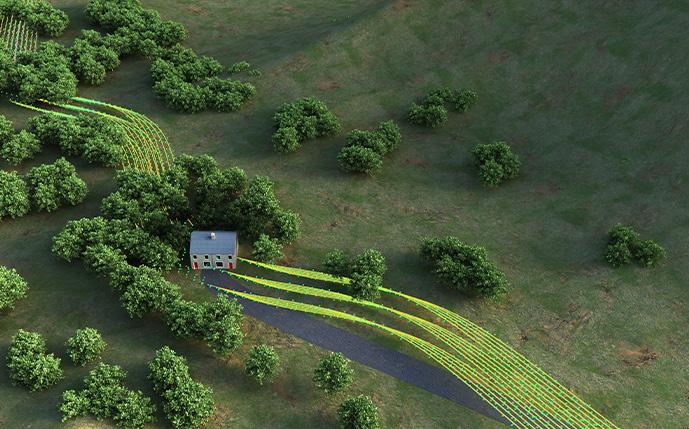
Green Lab brings together many passionate, talented researchers across Monash Business School working on climate change and sustainability, all keen for their research to make a difference – it’s a privilege to lead this fantastic group.
2023 has been a year of building networks, capacity and profile for Green Lab and our foundational work is beginning to pay off. We have new teams and new projects developing in all three research areas. We are building on our relationships with industry, government, and civil society. And we are making important contributions to key university initiatives, such as the Monash delegation to the international climate conference in Dubai (COP28) and the Monash Circular Economy Roadmap.
Highlights for 2023 include Green Lab’s contribution to the Australian Conservation Foundation’s Net Zero Benchmarking of Australian Banks, webinars on the Geopolitics of Food Security and Feeling Climate Change to the Bone, submissions and presentations on climate and sustainability reporting to international and Australian standard-setting bodies, and a series of engagement events with local government and manufacturing SMEs on circular economy practices.
I’m excited about what we can achieve in 2024, with a new post-doctoral researcher joining the team to help develop a research program on Net-Zero, Nature-Positive Australian Companies, a new Monash Circular Economy Roundtable, and more focus on linking our climate change adaptation work with PACT (Pacific Action on Climate Transitions).
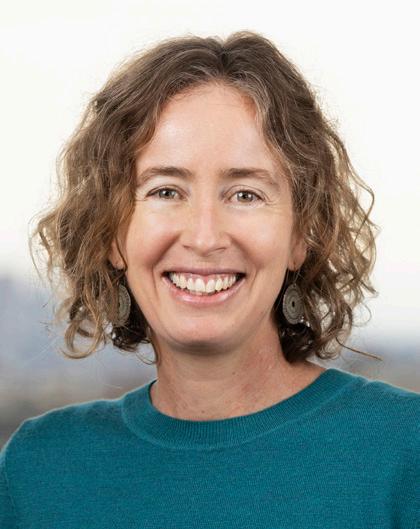
Green Lab is Monash Business School’s hub for research on climate change and sustainability.
Green Lab aims to engage in rigorous, applied, interdisciplinary, and impactful research that contributes to improved policy and regulatory settings and changed social and organisational behaviours in Australia, the Asia-Pacific region and beyond.
This will involve:
• Collaborating across Monash Business School disciplines including economics, accounting, finance, management, marketing, and law.
• Engaging strategically with government, industry, and civil society stakeholders to co-design and develop new research activities in response to emerging issues, and to apply research findings in practice.
• Working with Energy Lab and with colleagues in other faculties and centres across Monash University.
• Actively supporting the Monash-Fiji National University (FNU) Joint Centre on Climate Change in the Pacific, through research and capacity-building projects.
Over time, Green Lab aspires to be recognised, throughout Monash University and among key stakeholders, as a hub for rigorous, applied, interdisciplinary, and impactful research on climate change and sustainability. To achieve this, Green Lab will need to provide support and incentives for diverse researchers to work together in new ways, and to expand and enhance their relationships with stakeholders, including through co-developing and delivering applied research projects.
• Establish a profile and build community within Monash Business School and across the University.
• Build capacity to undertake interdisciplinary and applied research on climate change and sustainability.
• Increase quality research outputs on climate change and sustainability.
• Increase quality research engagement on climate change and sustainability.
Green Lab is currently focusing on three research themes:
• Climate and sustainability governance
• Optimal adaptation to climate change impacts
• Realising circular economy and sustainable supply chains in practice
Green Lab members are involved in a wide range of research projects. Recent and ongoing examples include:
• The Circular Economy Journey (Professor Amrik Sohal, Associate Professor Glen Croy, Dr Alka Nand, and team, Department of Management).
• Fire to Flourish project – researchers from the Centre for Health Economics are identifying the impacts of the Black Saturday bushfires on the social, health and economic well-being of Victorian communities.
• Nature conservation and ecological rehabilitation under climate change – research exploring optimal adaptation pathways for natural systems and associated ecosystem services (Associate Professor Anke Leroux, Department of Economics).
• The Real Carbon Price Index – quantifying the price of carbon around the world and how it has evolved over time (Monash Centre for Financial Studies).
• Climate-related risk and financial statements: implications for regulators, preparers, auditors, and users (Associate Professor Mukesh Garg, Department of Accounting).
• Climate Change Mainstreaming in Government: a case study of the Climate Change Act 2017 (Vic) (Anita Foerster and Alice Bleby, Department of Business Law & Taxation).
• Monash circular economy roundtable (MCER)
The MCER project, led by Amrik Sohal and Glen Croy, aims to:
– Act as a resource hub and a one-stop shop for businesses and LGAs for knowledge and information on all aspects of being part of a circular economy.
– Hold four meetings each year with the aim to gather 40 participants at each meeting. MCER meetings will be scheduled for around three hours duration and include presentations, panel discussion sessions, and networking time to enable strong partnerships to be developed between Monash Business School staff and businesses/LGAs.
– Deepen engagement with local businesses and LGAs for future research and supporting individual businesses in initiating and completing their circularity journey and hence their performance in many different aspects.
• Law & Policy Reform Submissions – climate risk disclosure
Submission to the Australian Government Treasury Consultation on Climate-related Financial Disclosure, 17 February 2023 (Anita Foerster, Mukesh Garg, Michael Spencer)
Submission to the Australian Government Treasury Consultation on Climate-related Financial Disclosure, 21 July 2023 (Anita Foerster, Mukesh Garg, Michael Spencer)
• Presentations to international and Australian standard-setters
– Climate and Sustainability Reporting
Mukesh Garg was invited to present on recent and ongoing research into climate risk disclosure and audit practices in Australia to the IFRS Sustainability Alliance Academic Alliance Series (26 September 2023) and to a workshop organised by Auditing and Assurance Standards Board (AUASB) involving practitioners and academics (25 October). A summary of the research (coauthored with Luisa Langer and Anita Foerster) has been accepted for publication in the AUASB report on climate change.
• Expert Input to Net-Zero Benchmarking Report
Ummul Ruthbah, Bei Cui, Michael Spencer and Anita Foerster provided expert verification of the methodological approach used by the Australian Conservation Foundation in their inaugural benchmark of Australian banks on their climate change commitments: From Laggards to Leaders
• Climate Mainstreaming in Victoria
Alice Bleby and Anita Foerster were invited to present to the Victorian Government’s Climate Risk Community of Practice (a forum for peer-learning and networking involving hundreds of Victorian public servants) on strategies for mainstreaming climate change in government decisions, policies and programs (31 August 2023), based on their recent report: Climate Mainstreaming in Practice: Using law to embed climate change in government policy and decision-making. This was followed by a follow-up presentation to the Climate Change Division (Department of Environment, Energy and Climate Action) (23 October 2023).
• Corporate Law Reform for Sustainability
Together with colleagues from the Department Business Law and Taxation, Anita Foerster addressed the Australian Corporate Accountability Network (10 October 2023) and a meeting of Australian environmental NGOs, human rights and labour organisations (19 October 2023) on opportunities to reform Australian corporate law and associated business regulation to improve corporate sustainability performance.
• ESG 23 Leadership Forum
Anita Foerster addressed this forum of business leaders, organised by Monash Business School, KPMG and Rotary Southbank.
• Net-zero, Nature-positive Australian Companies – advisory panel
This new Green Lab research program will be guided by an advisory committee made up of key stakeholders including the Commonwealth Department of Climate Change, Energy, the Environment and Water, investor organisations such as Australasian Council of Superannuation Investors and Investor Group on Climate Change and Australian standard-setting bodies such as the AASB.
• The Geopolitics of Food Security: Shifting to Sustainable Agriculture through Global System Change (24 May 2023), co-hosted by the Department of Management. Global food security is under threat. Global political instability is a key cause, along with increasingly unpredictable catastrophic weather events and the current techno-capitalist system. This webinar brought together academics and practitioners from India, Australia, and the United States to discuss the latest research and practice addressing global food security.
• International Workshop on Circular Economy and Sustainability Monash Prato Centre, Prato, Italy (25-27 June 2023), co-hosted by the Department of Management (Circular Economy & Sustainability Research Interest Group)
This workshop was supported by eight institutional partners from UK (3), Australia (2), France, Austria, and Netherlands, and brought together over 50-participants from a range of universities, businesses and government groups.
• Feeling climate change to the bone (6 September 2023), co-hosted by the Department of Management. The webinar profiled the work of MASIPAG, a network of small-scale farmers, landless agricultural workers and Indigenous peoples, their peoples’ organisations, NGOs and scientists in the Philippines, in organising for change and climate justice. It sought to amplify the voices of vulnerable communities who have firsthand experience with the impacts of climate change.
• Carbon literacy training (16 October 2023)
An ABDC-sponsored online training session, supported by Green Lab, which explored how we can take meaningful climate action as individuals, as academics, and as academic institutions.
• Helping Businesses Adopt Circular Economy Principles (2 November 2023)
This event brought together businesses (especially SMEs) and representatives from local and state governments to share their experiences on the CE journey. The Monash Circular Economy Roundtable was also launched at this event.
• Monash Business School climate workshop: Navigating the energy transition (13 November 2023), co-hosted by the Department of Econometrics and Business Statistics. Hosted in the lead-up to COP28 in Dubai, this workshop brings together international energy experts, Monash Business School researchers and Australian policymakers and practitioners to explore economic, regulatory and policy angles of the net-zero transition. The workshop features keynote speaker, Professor Hilde Bjornland, from the Norwegian Business School, who will draw on Norwegian experiences to reflect on how fossil fuel-rich economies like Australia can navigate the net-zero transition.
• Inaugural Circular Economy Research Network Conference (22 November 2023)
This conference, co-organised by the Department of Management and Green Lab (Amrik Sohal and Glen Croy), aims to facilitate collaborations between researchers and industry, community, and government representatives to plan for how research can help address prioritised circular economy challenges.
Core team:
• Associate Professor Anita Foerster, Director, Green Lab
• Associate Professor Mukesh Garg (Research Theme Lead – Climate & Sustainability Governance), Department of Accounting
• Associate Professor Glen Croy (Research Theme Lead – Circular Economy & Sustainable Supply Chains), Department of Management
• Dr Rachel Knott (Research Theme Lead – Climate Change Adaptation), Centre for Health Economics
• Associate Professor Jagjit Plahe (Research Theme Lead – Climate Change Adaptation), Department of Management
Group members:
• Professor Cameron Truong, Department of Accounting
• Associate Professor Mukesh Garg, Department of Accounting
• Dr Chris Adrian, Department of Accounting
• Dr Soon-Yeow Phang, Department of Accounting
• Dr Jin Zhang, Department of Accounting
• Professor Wen He, Department of Accounting
• Associate Professor Xin Ma, Department of Management
• Professor Amrik Sohal, Department of Management
• Dr Alka Nand, Department of Management
• Associate Professor Glen Croy, Department of Management
• Professor Dayna Simpson, Department of Management
• Professor Gavin Jack, Department of Management
• Associate Professor Jagjit Plahe, Department of Management
• Professor Mathew Hayward, Department of Management
• Associate Professor Anke Leroux, Department of Economics
• Professor Lata Gangadharan, Department of Economics
• Dr Mita Bhattacharya, Department of Economics
• Dr Alice Bleby, Department of Business Law & Taxation
• Dr Emdad Islam, Department of Banking & Finance
• Dr Bei Cui, Monash Centre for Financial Studies
• Dr Ummul Ruthbah, Monash Centre for Financial Studies
• Dr Rachel Knott, Centre for Health Economics
• Professor David Johnston, Centre for Health Economics
• Dr Rohan Sweeney, Centre for Health Economics
• Dr Sundar Ponnusamy, Centre for Health Economics
• Dr Anh Trinh, Centre for Health Economics
• Dr Farzana Hossain, Centre for Health Economics
• Associate Professor Duncan Mortimer, Centre for Health Economics
• Associate Professor Wang Lee, Centre for Development Economics and Sustainability
• Dr Yongxin Xu, Department of Banking & Finance
• Dr Emilia Tjernström, Centre for Development Economics and Sustainability
• Dr Ananya Bhattacharya, Department of Management
• Dr Sandip Dhole, Department of Accounting
• Dr Ozlem Dursun de Neef, Department of Banking & Finance
• Dr Hue Hwa Au Yong, Department of Banking & Finance
• Dr Wayne Wan, Department of Banking & Finance
• Dr Edward Tello, Department of Accounting
Connect with us
Email: greenlab@monash.edu
Web: monash.edu/business/impact-labs/green-lab

The Mutual Value Lab is dedicated to research, education, and engagement with our vibrant and growing co-operative and mutual enterprise (CME) sector through our partnership with their national peak body, Business Council of Co-operatives and Mutuals (www.bccm.coop).
We are already developing a comprehensive research program with a project in social care services (BCCM Care Together) in partnership with the Centre for Health Care and research proposals to co-design a secondary cooperative to provide back-office services (e.g. workforce recruitment and management) for social care cooperatives, healthcare workforce management applications and cost of capital modelling for mutuals. The Lab welcomes research colleagues from the Business School and across the university to engage with us and the CME sector. We are also exploring development of executive education and engagement activities in 2024.

Mutual Value Lab is a hub for interdisciplinary and applied research on Co-operative and Mutual Enterprises (CMEs) and mutual value creation. It conducts research on the operation and potential benefits of the CME business model, including how CMEs can help promote growth, create, and sustain markets, deliver competition and choice, and provide economic and social benefits for their members and local communities. Mutual Value Lab leverages disciplinary expertise from across Monash Business School, working with the CME sector through a partnership with the sector’s national peak body, the Business Council of Co-operatives and Mutuals (BCCM), to address ongoing and emerging issues.
Mutual Value Lab leverages the ongoing research collaboration between Monash Business School, the Business Council of Co-operatives and Mutuals (BCCM) and the CME sector in Australia. Since 2017, this collaboration has resulted in the development and commercialisation of a ground-breaking performance and impact measurement framework known as the Mutual Value Measurement (MVM) framework (see www.mvm.coop).
Following the launch of the MVM framework in 2019, Monash and BCCM have collaborated to support CME review and adopt the framework for strategic measurement reporting and communication of mutual value. The MVM framework has now been adopted by CMEs in Australia, UK and USA.
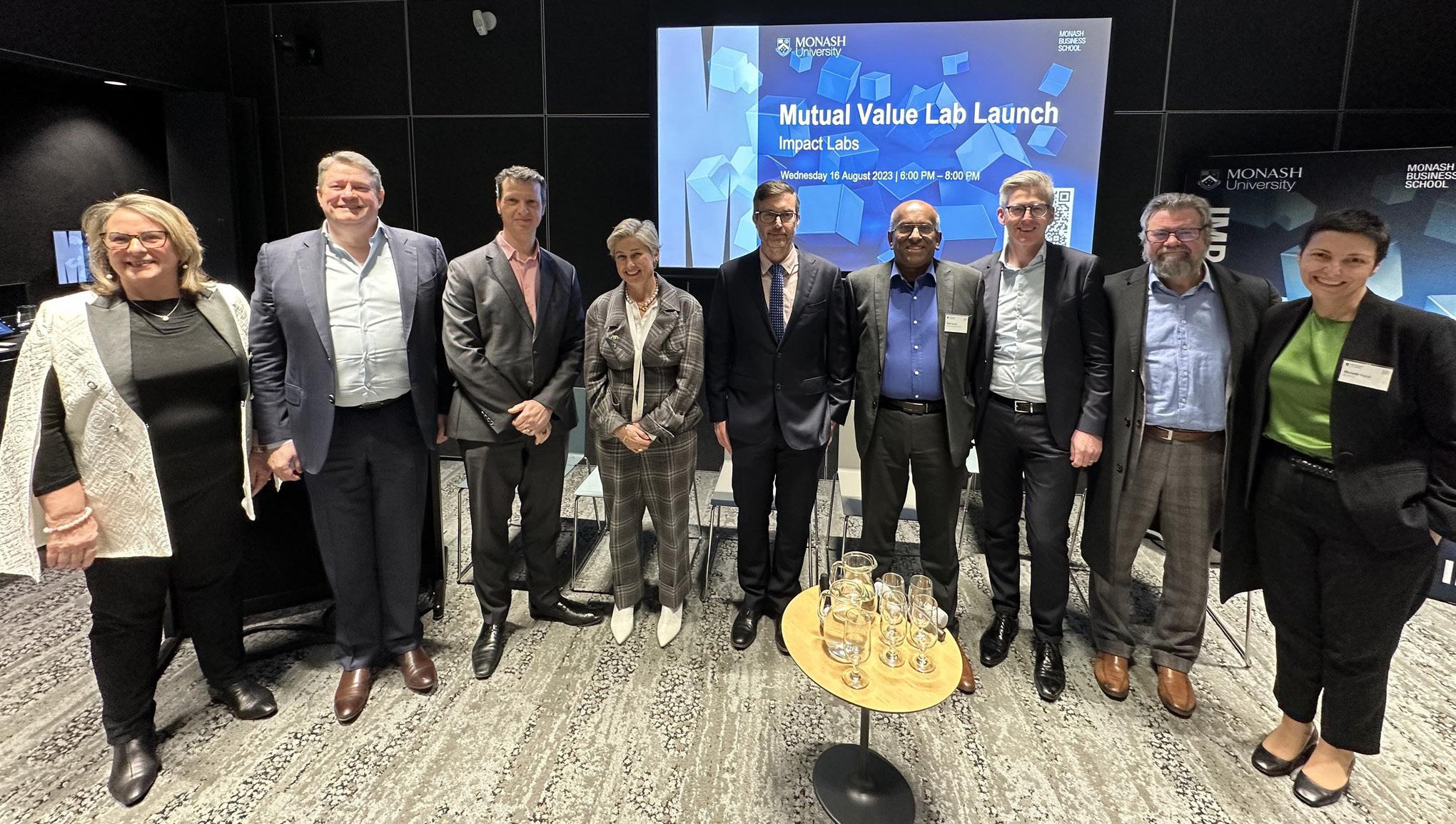
The Mutual Value Lab exists to support the growth, development, and visibility of cooperatives and mutuals through research, education and engagement initiatives that provide evidence and insights for the mutual value contributed to individuals, communities, and the broader economy.
• Engage strategically with industry and government stakeholders to co-design and develop new research activities in response to emerging issues and apply research findings in practice.
• Provide a hub that unites researchers from Monash Business School disciplines and other University faculties and centres who have a collective interest in and a commitment to the cooperative and mutual business model.
• Provide a conduit for linking the CME sector with other Impact Labs and centres in the business school.
• Contribute to addressing Monash’s Global Challenge of Thriving Communities, particularly through working with CMEs across the health, housing and social care sectors and CMEs located in regional and rural communities.
• Provide a hub for collaboration with similar centres and labs across Australia and overseas.
The Mutual Value Lab is honoured to be the research partner for the BCCM Care Together Program, an exciting new pilot program exploring how CMEs can be used in regional and remote Australia to develop and provide social care services. The program is a partnership between BCCM and the Department of Health and Aged Care and is funded by the Australian government. From 2023-2025, a Lab research team will work on evaluating the Care Together program and its projects, developing case studies of individual social care projects within the program and supporting the monitoring, evaluation, and reporting of performance, to the Australian government.
Other research projects are under development.
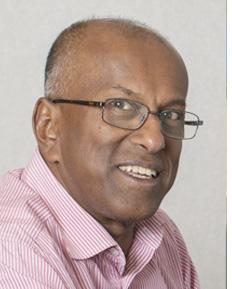

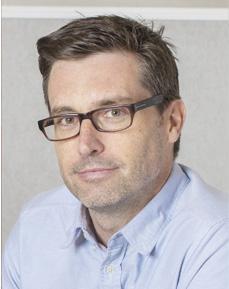
The Lab is developing executive education programs with the first program focused on the MVM framework. Two virtual modules that provide content and advice on the MVM framework and its adoption approach are under development in partnership with The Leadership and Executive Education (LEE) team and their third-party education platform provider, Cahoot Learning. Other programs focused on leadership, board governance, accounting and strategy will be scoped and developed in 2024 (in multiformats including virtual programs).
A range of engagement activities are planned for 2024. Some of these activities include:
• A workshop in Prato jointly hosted with Warwick Business School and focused on showcasing MVM and other research activities of the Lab to UK and European CMEs and academic colleagues.
• Research Kiosks bringing academic researchers and CME senior leaders to discuss and scope research projects.
• Developing strategic themes for presentation at BCCM’s Senior Leaders Summits
• Distinguished Scholar visits to present seminars at the Lab at Monash Business School
Core team
• Associate Professor Paul Thambar, Director, Mutual Value Lab, and Department of Accounting
• Professor Matthew Hall, Research Lead, Mutual Value Lab, and Department of Accounting
• Liyan Zhang, Research Fellow, BCCM Care Together Program Members
• Dr Annemarie Conrath-Hargreaves, Department of Accounting
• Professor Charmine Hartel, Impact Labs, and Department of Management
• Professor Anthony Harris, Centre for Health Economics
• Professor Dennis Petrie, Centre for Health Economics
• Dr Samia Badji, Centre for Health Economics
• Associate Professor Michael Duffy, Department of Business Law & Taxation
• Professor Yuval Millo, Warwick Business School
• Dr Sarah Adams, Australian National University
• Peter Hunt, Managing Director, Mutuo
• Mark Willetts, Partner, Mutuo
The Lab has established an Industry Advisory Panel to provide guidance and support for the Lab’s research, education, and engagement programs. The Panel will hold 3-4 meetings annually (in person and virtually). The first meeting is scheduled for the week commencing 20 November 2023.
The panel members are:
• Melina Morrison, CEO, BCCM (Chair)
• Rohan Mead, Group CEO, Australian Unity
• Alison Holloway, BCCM Director and CEO, SGS Economics and Planning
• Matthew Hall, Professor, Department of Accounting
• Paul Thambar, Associate Professor, Department of Accounting
Email: mutualvaluelab@monash.edu
Web: monash.edu/business/impact-labs/mutual-value-lab

As we look back on our inaugural year as one of Monash Business School’s forward-looking impact labs, we are pleased to highlight a range of noteworthy achievements that reflect our members’ dedication and progress. First, we’ve crafted our initial organisational structure, pinpointing key research streams and forming a leadership team, with an ongoing commitment to refining and enhancing it as we progress. In parallel, our membership and partnerships continue to grow as does the depth and breadth of content on our website. Secondly, our team successfully obtained university and external seed funding to kickstart projects aimed at laying the foundation for securing further external funding to advance our social impact goals. Thirdly, we developed several interdisciplinary project proposals and grant applications, which we hope to secure funding for in 2024.
Next year, we will launch our seminar and webinar series, appoint a PostDoc to advance our VR initiatives and funding partnerships, and involve PhD students more deeply in our activities.
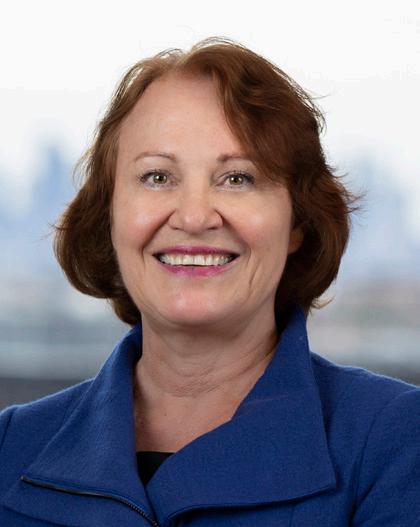 Professor Charmine Hartel Director
Professor Charmine Hartel Director
One of Monash University’s key research pillars is ‘Thriving Communities’ – how do we solve the grand challenge of systemic social issues of inequality and disadvantage so that all enjoy well-being and inclusion? Monash Business School’s Opportunity Tech Lab does so by discovering, developing, and delivering with its partners and intended beneficiaries, scalable transformative digital solutions that advance its vision of an inclusive and equitable digital economy where all thrive.
The Opportunity Tech Lab is inclusive of people with lived experiences of disadvantage and stigma in its research culture, project design, implementation, and scaling.
The Opportunity Tech Lab aspires to be a leading advisor and generator of transformative and scalable digital solutions that responsibly address systemic inequities in the economic participation of stigmatised and vulnerable groups. It also aims to advance social impact evaluation methodologies.
• Strategic Objective 1: Develop OTL Organisational Structure
– Build key research streams.
– Build core interdisciplinary capability to take on new projects agilely and effectively under each research stream.
– Develop OTL Leadership Team.
• Strategic Objective 2: Build and implement external communication and networking strategy
– Develop Webinar series.
– Website development.
– Develop external relationships with partners who will fund projects.
• Strategic Objective 3: Funding strategy
– Obtain seed funding for at least one pilot project in each research stream.
– Meet with Monash Business School Research Development & Partnerships Manager to develop a list of potential government and business funders for each OTL project and associated action plan.
– Obtain PhD scholarships.
– Identify OTL projects with commercialisation opportunities.
– Identify OTL projects with potential for ARC grants.
Our research agenda and expertise lie at the intersection between the digital economy and inequities in employment and entrepreneurship. A non-exhaustive list of the interrelated themes we address follows:
• People with disabilities are meaningfully employed by organisations, in STEM fields, or as entrepreneurs.
• Closing the gap of socially disadvantaged women and stigmatised groups in employment and entrepreneurship.
• Accelerating re-employment of vulnerable workers displaced by changes arising as Industry 4.0 evolves.
• Narrowing the digital divide by broadening digital literacy across society and ensuring youth have work readiness and entrepreneurial skills relevant to the digital economy.
• Critiquing, developing, and evaluating digital tools that facilitate economic participation including ethical and legal implications.
We aim to challenge established developmental norms and expectations through educationally driven information, practice, and social, cultural, and organisational change – via ethical research practices.
• Awarded $30,000 in National Indigenous Innovation Challenge for Wunan Social Capital App (OTL member as lead CI).
• Awarded $30,000 in National Indigenous Innovation Challenge for ‘Black Duck Foods Native Grains and Tuber Alliance’ (OTL member as lead and three other OTL members on CI team).
• Awarded $30,000 in National Indigenous Innovation Challenge for the Native Fruit Processing Project (OTL member on CI team).
• After undertaking work to the proof-of-concept phase, we were successful in obtaining a $22,272.72 external grant to develop and evaluate a virtual reality program for autistic individuals to identify and successfully pitch a new business venture to potential investors.
• Awarded a $12,000 grant from the Monash Adaptive Technology and Society Grant Scheme. This project, in collaboration with staff from FIT, is developing Adaptive Maps for People with Neurodiversity.
• A proof-of-concept Social Impact Index software tool, called SIItation has been developed and presented to the University’s Impact Working Group for feedback. Based on that feedback, we have devised a plan for progressing the tool to commercialise it.
• Awarded a Faculty of IT Interdisciplinary grant to undertake a project on financial inclusion of people with disabilities.
• In collaboration with the Robotics Lab in the Engineering Faculty, a prototype has been created of a service robot that is programmed to promote a healthier lifestyle.
Core team:
• Professor Charmine Hartel, Director, Opportunity Tech Lab
• Associate Professor Kristian Rotaru, Associate Director
Research leads and group members:
• Dr Paul McIntosh, Digital Technology Lead
• Dr Irwyn Shepherd, Simulation Pedagogy Lead
• Professor Pitosh Heyden, Department of Management
• Associate Professor Andrea Kirk-Brown, Department of Management
• Professor Nicholas McGuigan, Department of Accounting
• Associate Professor Shahriar Abu Zafar, Department of Banking and Finance
• Professor Dayna Simpson, Department of Management
• Professor Pieter Van Dijk, Department of Management
• Associate Professor Anna Krzeminska, Macquarie University
• Dr Nkosana Mafico, University of Edinburgh Business School
• Professor Andreas Leibbrandt, Department of Economics
• Dr Yimin Cheng, Department of Marketing
• Dr Luke Greenacre, Department of Marketing
• Associate Professor Dewi Tojib, Department of Marketing
• Dr Dominic Thomas, Department of Marketing
• Professor Kohyar Kiazad, Department of Management
In addition to the above researchers, the Opportunity Tech Lab includes multiple academics from Monash Business School, the Faculty of IT, the School of Educational Psychology and Counselling, the Emerging Technologies Research Lab, entrepreneurship academic partners from Macquarie University and advisory board members from social-purpose organisations.
Furthermore, the lab is the Monash Business School partner of the new Monash Assistive Technology and Society Institute (MATS) and the HumaniSE Lab. It also has a formal collaborative partnership with the Monash Business Behavioural Lab (MBBL), sharing technology infrastructure and expertise.
Connect with us
Email: opportunitytechlab@monash.edu
Web: monash.edu/business/impact-labs/opportunity-tech-lab

SoDa Labs will be a component of the Monash Business School’s Impact Labs Initiative for the first time in 2023. The establishment of the Impact Labs provided SoDa Labs with an institutional structure within the Business School and University’s organisational systems. As a result, the previous year marked the beginning of our path to become Australia’s premier social data science group and a global brand for alternative data research. SoDa’s six key principles guide all of our work. The emphasis on publishing in respectable publications and conducting intensive empirical research is consistent with SoDa Lab’s highquality research principle. The lab’s initiatives to influence policy and public debate through its research outputs, such as the IP Observatory’s involvement in human rights monitoring, exemplify the notion of rigorous research driving real-world impact. Projects concentrating on democracy, media narratives, and sociopolitical analysis demonstrate the commitment to researching freedom-promoting topics. The creation of open-source tools and datasets demonstrates the lab’s dedication to the free interchange of ideas and resources. We have been engaged in multi-disciplinary projects and partnerships with various academic and non-academic institutions throughout the year, which represents SoDa Lab’s collaborative attitude. Finally, their commitment to a hacker and learning culture is shown in the development of novel technologies and continuous learning activities, as evidenced in their numerous workshops and webinars. SoDa Labs has a significant presence in the Geopolitical Security Challenge as part of Monash’s Impact 2030 strategic plan, with members actively participating in relevant working groups and developing capacity-mapping tools. The lab’s established research track record in political economy and digital state, together with the IP Observatory’s activity, places it firmly in the geopolitical security sphere. Members of the lab continued to strengthen ties with Arts and FIT in particular. The interdisciplinary approach of our lab and existing relationships reflect our ambitions to become a unifying umbrella for data-driven, interdisciplinary research in this field. The Monash IP Observatory has made important contributions to geopolitical security and has a global reputation for its distinctive and powerful data insights, as proven by collaborations with the UN and global media outlets. The “Monash IP Observatory 2.0” prototype has been completed, and a live-beta version will be released for beta testing before the end of 2023.
In addition, SoDa Labs has continued to build further tools to serve the Business School and beyond. Notably, leveraging our text-as-data, LLM and AI expertise, we have developed Astro (astro.monash. edu) a web-app which puts AI/LLM powered search into the hands of lay users across Monash. Astro currently enables users to query, in natural language, the PURE peer reviewed research database from 2018 to 2021 and provides the most semantically relevant publications and their authors for down-stream tasks. Further, Astro automatically discovers clusters of research, and pre-labels them, again leveraging LLMs at scale. Astro is currently in beta and is available via Okta for all Monash staff.
KASPR Datahaus, a commercial spin-off, has exhibited revenue and operational profit success. It has amassed an international clientele and formed a number of strategic alliances in preparation for future expansion. KASPR has recently been accepted into the Prime stream of Monash Business School’s
Creative Destruction Lab Melbourne. Members and students from the SoDa Lab have continued to operate our successful international online webinar series, the Applied Young Economist Webinar (AYEW Series), and co-hosted the Text-As-Data Workshop with ETH Zurich and Warwick.
Most significantly, thank all of the SoDa Labs PIs, PostDocs, and DevOps, as well as our students and affiliates, whose tireless efforts throughout the year resulted in the accomplishments detailed in this report. SoDa Labs is home to a diverse group of clever, creative, eager, and hardworking scholars from all backgrounds, and I am grateful to be a part of this adventure.
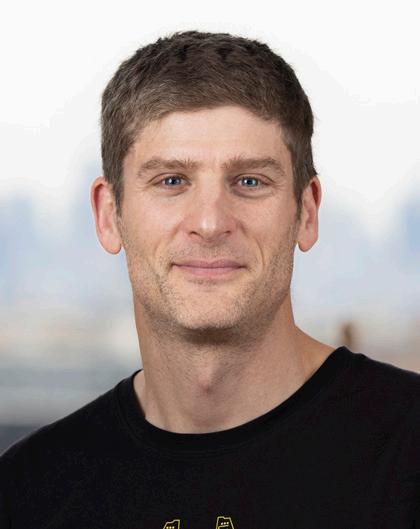

Monash Soda Laboratories (“SoDa Lab”), founded in October 2018 by members of the Departments of Economics and Econometrics & Business Statistics, is an empirical research laboratory in the Monash Business School whose members combine new tools from data science, machine learning and beyond with powerful techniques in the quantitative social sciences to tackle major research challenges in the social sciences.
To be the top social science from alternative data group in the country, and in the top 10 worldwide.
Our principles
1. High-quality Research: SoDa Lab’s primary mission is to support fundamental, rigorous research around the use of alternative data in social and economic sciences. Rigorous research outputs (e.g., papers in high-quality journals) have priority over other outcomes.
2. Real-world impact driven by rigorous research: SoDa Lab’s mission is also to support the dissemination of research results, knowledge, and technology to improve the world. Our impact agenda is driven by the research of SoDa’s members and not the other way around. Fundamental improvements to society require a foundation based on rigorous research.
3. Freedom: We care about human freedom. From oppression. From tyranny. From environmental degradation. From Poverty. From abuse. We pursue a research agenda that serves the freedom program and actively works for those who promote it, and against those who would frustrate it.
4. Open: We support the free exchange of ideas, tools and data among like-minded academics, students, and groups. Where possible, and as soon as is practical for our projects, we open-source our code, datasets, and tools.
5. Collaborative: The future of science is collaborative. Important projects are domain-, discipline-, and toolset-blind. So are we. We will seek to partner with domain experts and like-minded groups to tackle big problems.
6. Hacker culture: Toolsets are made for breaking, joining, innovating, and re-making.
7. Learning culture: Alternative data work and the tools associated means a deep commitment to constantly learning and training. We support this and push each other to learn, train others, and repeat, especially our students and young scientists.
• Establish SoDa Labs as a central node of Geopolitical Security research and impact.
• Establish the Monash IP-Observatory on a Sustainable Long-term impact footing.
• Build a national and international network of SoDa Hubs.
• Expand our platform infrastructure.
• Leverage KASPR Datahaus PTY LTD for scale and impact.
• SoDa Webinar / Applied Young Economist Webinar Series / Text-As-Data Online Workshop / New Online Workshops.
The Socioeconomic Determinants of Local Print, Radio and Digital News Media Availability
Raschky, P., Angus, S., Ackermann, K. and Kreitmeir, D.
Description: Joint project with the Public Interest Journalism Initiative (PIJI), a non-partisan think tank, on the socioeconomic determinants of (1) public interest journalism (PIJ) coverage and (2) “thriving” (competitive) PIJ media markets in Australian local government areas (LGAs).
Funding: A$21,232.00 (Public Interest Journalism Initiative Ltd)
Scanlon Research Foundation: Strengthening Democracy - Analysing Australian Discourse of Democracy, 2006 to 2023
Angus, S., O’Neill, L. and Dahiya, Y.
Description: Using a combination of time-series, machine-learning and NLP tools to analyse Australia’s public discourse of Democracy. Providing the Dept. Department of Home Affairs (via Scanlon Research Foundation) with a baseline analysis of our discourse of Democracy in Australia.
Funding: A$22,262.00 (Scanlon Foundation).
Tracking media and parliamentary narratives around cycles of disadvantage in Australia
Webb, G., Angus, S., Goodwin, S., Dwyer, T., Smith, L., Bragge, P., Batstone, J. and Shareghi Nojehdeh, E.
Description: By employing state of the art natural language processing (NLP) and large language model (LLM) technologies, developing methods, tools and insights to track public discourse of opportunity and inclusion around Australia.
Funding: A$497,822.00 (Paul Ramsay Foundation)
Leveraging remote, granular and consistent internet measurement for strategic insights in South-East Asia and the South Pacific
Angus, S., Raschky, P. and Ackermann, K.
Description: The aim of this project is to enhance the granularity and quality of observational data obtained from countries in the SE Asian and South Pacific regions. To achieve this aim, additional source locations would be added to the existing MonIPO fleet, starting January 2022 and continuing to December 2022. By leveraging data partitioning and query/aggregation in place MonIPO would undertake a comparison study to evaluate the best configuration to deliver coverage, quality and costeffectiveness of enriched observational acquisition in the region.
Funding: A$163,186.00 (Australian Department of Defence)
Affirmative Action, Entrepreneurship and Growth
Orban, K.
Funding: GBP 25.000 (STEG Grant, CEPR)
Amarasinghe, A. (2023). Public Sentiment in Times of Terror, Journal of Development Economics 162, 103058.
Angus, S. D. (2023). How liberating is liberation technology? In C. Watkin, & O. Davis (Eds.), New Interdisciplinary Perspectives On and Beyond Autonomy (1st ed., pp. 101-114). (Warwick Series in the Humanities). Routledge.
Angus, S. D., Borgohain, S., Fan, S., Goodwin, S., Kristanto, A., O’Neill, L., Purchase, H. C., Van Nieuwenhove, N., Yang, Y., Zhang, Y.,Dwyer, T., (2023). Discourse Lines: Visualising Current Policy and Media Storylines of Opportunity and Disadvantage with Narrative Exploration Maps, NLVIS 23, IEEE VIS23, Melbourne, Australia.
O’Neill, L., Anantharama, N., Borgohain, S., & Angus, S. D. (2023). Models teaching models: improving model accuracy with slingshot learning. EACL 2023: the 17th Conference of the European Chapter of the Association for Computational Linguistics, Proceedings of the Conference (pp. 32333247). Association for Computational Linguistics (ACL).
Baragwanath, K., Bayi, E. and Shinde, N. (2023). Collective property rights lead to secondary forest growth in the Brazilian Amazon, PNAS
Becker, S.O., Lindenthal, V. Mukand, S. and F. Waldinger (2023). Persecution and Escape: Professional Networks and High-Skilled Emigration from Nazi Germany, American Economic Journal: Applied Economics (forthcoming).
Dahis, R. Schiavon, L. and Scot, T. (2023). Selecting Top Bureaucrats: Admission Exams and Performance in Brazil, Review of Economics and Statistics, 1–47.
Goodwin, S., Angus, S.D., O’Neill, L., Zhang, Y., Van Nieuwenhove, N., Wu, B., and Dwyer, T. (2023). Do Words Matter: Visualising Historical Policy and Media Narratives around Opportunity and Disadvantage in Australia, 8th Workshop on Visualization for the Digital Humanities, IEEE VIS2023, Melbourne Australia.
Hodler, R., Lechner, M. and Raschky, P.A. (2023). Institutions and the resource curse: New insights from causal machine learning, PLOS ONE.
Hodler, R., Raschky, P.A. and Strittmatter, A. (2023). Religiosity and Terrorism: Evidence from Ramadan Fasting, Journal of Peace Research, April 2023.
Juhász, R., Lane, N., and Rodrik, D. (2023). The New Economics of Industrial Policy, Annual Review of Economics (forthcoming).
Kreitmeir, D. and Überfuhr, T. (2023). Disease and Development - The Predicted Mortality Instrument Revisited, Journal of Applied Econometrics (conditionally accepted).
Labanca, C. and Pozzoli, D. (2023). Hours Constraints and Wage Differentials across Firms, Journal of Human Resources (accepted).
Pereira, R. H. M., Vieira, R. S., Bizzarro, F., Barbosa, R. J., Dahis, R., and Ferreira, D. T. (2023). Free public transit and voter turnout. Electoral Studies, 86, 102690.
Yotzov, I., Anayi, L., Bloom, N., Bunn, P., Mizen, P., Öztürk,Ö. and Thwaites, G. (2023). Firm Inflation Uncertainty. AEA Papers and Proceedings, 113: 56-60.
Amacher, G.S., Baragwanath, K., Gori-Maia, A., Schons, S.Z. and Shinde, N. (2023). Improving Local Governance and Environmental Spillovers: a study of the Programa Municípios Verdes in the Brazilian Amazon.
Amarasinghe, A. and Raschky, P.A. (2023). Competing for Attention – The Effect of Talk Radio on Elections and Political Polarization in the US.
Amarasinghe, A., Raschky, P.A. and Zenou, Y., and Zhou, J. (2023). Conflicts in Spatial Networks (reject & resubmit at Quantitative Economics).
Amarasinghe, A., Hodler, R., Raschky, P.A. and Zenou, Y., (2023) Key Players in Economic Development (revise & resubmit at Journal of Economic Behaviour and Organisation).
Baragwanath, K. and Zheng, X. (2023). The Greener Gender: Women Politicians and Deforestation in Brazil.
Bazzi, S. and Labanca, C. (2023) Campaign Connections
Becker, S.O., Rubin, J. and L. Woessman (2023). Religion and Growth (revise & resubmit at Journal of Economic Literature).
Becker, S. O., Pfaff, S., Hsiao, Y., and Rubin, J. (2023) Competing social influence in contested diffusion: Luther, Erasmus and the spread of the Protestant Reformation.
Cardoso, D. and Dahis, R. (2023). Calculating the Economic Value of Non-marginal Mortality Risk Reductions.
Dahis, R., de las Heras, I. and Saavedra, S. (2023). Young Politicians and Long-Term Policy
Dahis, R., Ricca, B., Scot, T., Sales, N. and Nascimento, L. (2023). MiDES: New Data and Facts from Local Procurement and Budget Execution in Brazil.
Dahis, R. and Szerman, C. (2023). Decentralizing Development: Evidence from Government Splits.
Fetzer, T. and Yotzov, I. (2023). (How) Do electoral surprises drive business cycles? Evidence from a new dataset.
Juhász, R., Lane, N., Oehlsen, E., and Pérez, V. C. (2023). The Who, What, When, and How of Industrial Policy: A Text-Based Approach.
Kreitmeir, D. (2023). The Political Economy of Socio-environmental Conflict: Evidence from Peru.
Kreitmeir, D., Lane, N. and Raschky, P.A. (2023). The Value of Names – Civil Society, Information, and Governing Multinationals (revise & resubmit at Journal of the European Economic Association).
Kreitmeir, D. and Raschky, P.A. (2023). The Unintended Consequences of Censoring Digital Technology – Evidence from Italy’s Chatgpt Ban.
Labanca, C., Molina, D. and Muendler, M.-A. (2023). Preparing to Export (revise & resubmit at Journal of International Economics).
Li, W. (2023). Dual Leadership and Bureaucratic Capacity.
Li, W. (2023). Rotation, Performance Rewards, and Property Rights (revise & resubmit at Economic Journal).
Li, W., Roland, G. and Xie, Y. (2023). Hobbesian Wars and Separation of Powers.
Panza, L., Lecci, M., Swee, E., and Zanella, G. (2023). Historical anti-fascism and right-wing voting in Italy (revise & resubmit at Journal of Economic History).
Vieira, J., Dahis, R. and Assunção, J. (2023). The Role of Sanctions and Spillovers in Forest Conservation.
• IP Observatory – Monitors the availability and quality of the Internet during critical events such as elections, natural disasters, or conflict.
• Astro – a LLM backed semantic search tool for Monash PURE outputs, providing automated discovery, clustering, labelling and outputs with natural language queries.
• Forum Brain AI – Takes the guesswork out of open-ended online forum analytics at scale.
• SETU Explore – Provides learning from students about their experience of learning within a unit.
• Green transition navigator – Helps countries identify opportunities to transition to a green economy.
• Changing narratives – Track how disadvantage has been discussed.
• SoDa WP tool – A tool for creating your own working paper series and facilitating the process of submitting a working paper and adding the paper and meta info to RePEc.
• Reddit scraper – This is a little Python script that allows you to scrape comments from a subreddit on reddit.com.
• Nighttime light – A repository of Python scripts to calculate various night-time light statistics.
• Flood risk buffer – Python script to calculate the average flood risk in a buffer around a point location.
• Web scraping in Python – A faster, more efficient way of web scraping.
• GweetT – An application for sentiment analysis of tweets of top trending Google searches using R.
• Paralleslsql – A SQL extension that paralyses SQL queries.
• Pose-estimation detection – Implementation of open pose with TensorFlow and OpenCV for estimation of human poses and classification.
• synthReturn – R package that implements a synthetic matching method for stock market returns.
• MiDES – Data on budget execution and procurement of subnational entities in Brazil for 2003-21.
• conformr – Tools for creating transparent and reproducible panel datasets.
High Impact Leadership Development Program – Monash Business School Leadership and Executive Education (LEE)
The ‘High Impact Leadership Development Program’ is a comprehensive nine-month initiative designed for senior leaders at CitiPower, Powercor, United Energy, and Beon Energy Solutions. Focused on stakeholder engagement and leadership transformation, the program revolves around key themes of digitalisation, energy, and climate change. The program comprises two pillars.
Emphasises stakeholder engagement, innovative thinking, and relationship management.
Themes:
• Digital Stakeholder Engagement for Impact
• Energy Stakeholder Engagement for Impact
• Climate Stakeholder Engagement for Impact
Exploration Impact Labs:
• Digital Exploration Impact Lab
• Energy Exploration Impact Lab
• Climate Exploration Impact Lab
Focuses on individual leadership transformations through learning modules covering clear leadership, behavioural change, and climate change competencies.
Learning Modules:
• Clear Leadership
• Behavioural Change
• Climate Change Competencies
Delivered in 2023 by the SoDa Labs (Simon Angus, Paul Raschky, and Klaus Akcermann), the Digital Impact Exploration Lab component includes facilitated roundtable discussions. These sessions feature a curated mix of external stakeholders, such as customers, regulators, resource partners, government partners, advocacy groups, and advisory groups relevant to CitiPower, Powercor, United Energy, and Beon Energy Solution. Additionally, a select group of Monash University academics participates, sharing cutting-edge research findings.
Apart from our numerous active research partnerships and projects (refer to the above), the Monash IP Observatory remains a crucial international engagement and impact vehicle for the Lab.
The Monash IP Observatory, housed at SoDa Laboratories, has developed, over the past five years, a novel cloud-based, global technology platform to continuously monitor the activity and quality of over 400 million internet protocol (IP) v4 addresses in near real time, making over 3 billion measurements a day. In fact, our measurement basis is the most granular in time and space that we are aware of, giving a unique capability to inform decision-making in a range of application areas, at global scale. While our typical aggregation boundaries are national, state, local (e.g. county/LGA), we also provide GRID and ISP views that enable granular analysis at gridded square kilometre regions, or differential analysis of internet service provider (ISP) activities during socio-political and disaster events.
We have also developed and deployed statistical anomaly detection methods, at scale, to objectively identify departures from normalcy in time-series traces of connectivity and latency wherever the internet is. The technology behind the Observatory has been commercialised through our sister company, KASPR Datahaus PTY LTD. The Observatory is founded and run by Simon Angus, Paul Raschky, and Klaus Ackermann, all members of the Monash Business School.
External partnerships in 2023:
• United Nations – Office of the High Commissioner for Human Rights – Observatory data, comprising over 1.6million rows, covering 152 countries and over 2,000 regions world-wide, is delivered daily to the UN-OHCHR to assist human rights officers validate shut-down and slow-down events globally.
– The United Nations have commented that the Monash IP Observatory is “Critical infrastructure for human rights monitoring.”
– The Observatory was further informed by our observations, and direct analysis/insights.
• The Economist – The Monash IP Observatory continues to collaborate with The Economist, powering their Daily Chart coverage of internet availability in Gaza during the recent Israeli-Gazan conflict.
– https://www.economist.com/graphic-detail/2023/10/30/israels-ground-assault-hits-gazascommunication-network
– https://www.economist.com/graphic-detail/2023/10/20/gazans-are-rapidly-losing-access-to-theinternet
– In addition, a direct data pipeline has been established allowing The Economist to pull current observations on Gaza every 12 hours. This pipeline is ongoing.
• Reuters – The Monash IP Observatory collaborated with Reuters Hong Kong on the Optus outage (Nov 2023) and was used in their reporting.
– https://www.reuters.com/business/media-telecom/australia-investigate-optus-internet-phoneoutage-2023-11-08/
• ABC News –The Monash IP Observatory analysis was featured in their reporting on the day of the Optus Outage:
– https://www.abc.net.au/news/2023-11-08/optus-outage-mobile-phones-internet-whathappened/103077180
• Text-as-Data Workshop: The 5th and 6th Monash-Warwick-Zurich Text-as-Data workshop in April, respectively, September 2023 were jointly organised by SoDa affiliate Elliott Ash from ETH Zurich and SoDa Labs Principal Investigator Sascha Becker from Monash and Warwick.
• Applied Young Economist Webinar (AYEW): Jointly organised by the University of Warwick and Monash University, AYEW is dedicated to providing a virtual platform for young researchers, including PhD candidates and post-doctoral fellows. Established in April 2020, the AYEW has successfully hosted over 150 weekly webinars, attracting presenters and participants from across the globe. In 2023, the series has continued to flourish, hosting an additional 40 speakers from more than 30 esteemed institutions worldwide. These institutions include: London School of Economics (LSE), Max Planck Institute, Paris School of Economics (PSE), Yale University, Columbia University, University of Barcelona, University of Warwick, University of California- Irvine, INSEAD, Brown University, University of Hong Kong, Cornell University, Northwestern University, Pompeu Fabra University (UPF), University of Oxford, University of Tokyo, University of Copenhagen, Bocconi University, Tilburg University, Princeton University, Imperial College London, University of Minnesota; among others.
• Sascha O Becker: Keynote Lecture at the “Frontier Research in Economic and Social History (FRESH)” Meeting in Cologne, Germany, May 2023.
• Sascha O Becker: Keynote Lecture at Luxembourg School of Religion & Society in May 2023.
• Paul A. Raschky: keynote address in the “Big Data and Textual Analysis in Economics, Finance, and Politics Workshop” at the University of Sydney, Australia, in June 2023.
• Simon D Angus: invited talk in “The Australian Data Science Network (ADSN) Conference”, Adelaide, Australia (Dec 2023).
S. Becker and Marco Lecci (SoDa PhD student) continue to provide high-quality interviews with top economists on growth and more.
https://growth-chat.com/
S. Angus was interviewed for The Random Sample on ChatGPT and large language models.
https://www.therandomsample.com.au/podcast/chatgpt/
The commercial spin-off KASPR Datahaus PTY LTD was accepted into the Monash Business School Creative Destruction Lab’s Prime Stream.
People and partners
Core team:
• Associate Professor Simon Angus, Director, SoDa Labs
• Professor Paul Raschky, Director, SoDa Labs
• Dr Lachlan O’Neill, Research Fellow, SoDa Labs
• Dr David Kreitmeir, Research Fellow, SoDa Labs
• Adrian Kristanto, Research Assistant, SoDa Labs
• Yashdeep Dahiya, Research Fellow, SoDa Labs
• Dr Lukas Wellner, Research Fellow, SoDa Labs (Commencing in 2024)
• Other SoDa Labs members and affiliates
Connect with us
Email: sodalabs@monash.edu
Web: monash.edu/business/impact-labs/soda-labs
Impact Labs, Monash Business School
E: impactlabs@monash.edu monash.edu/business/impact-labs